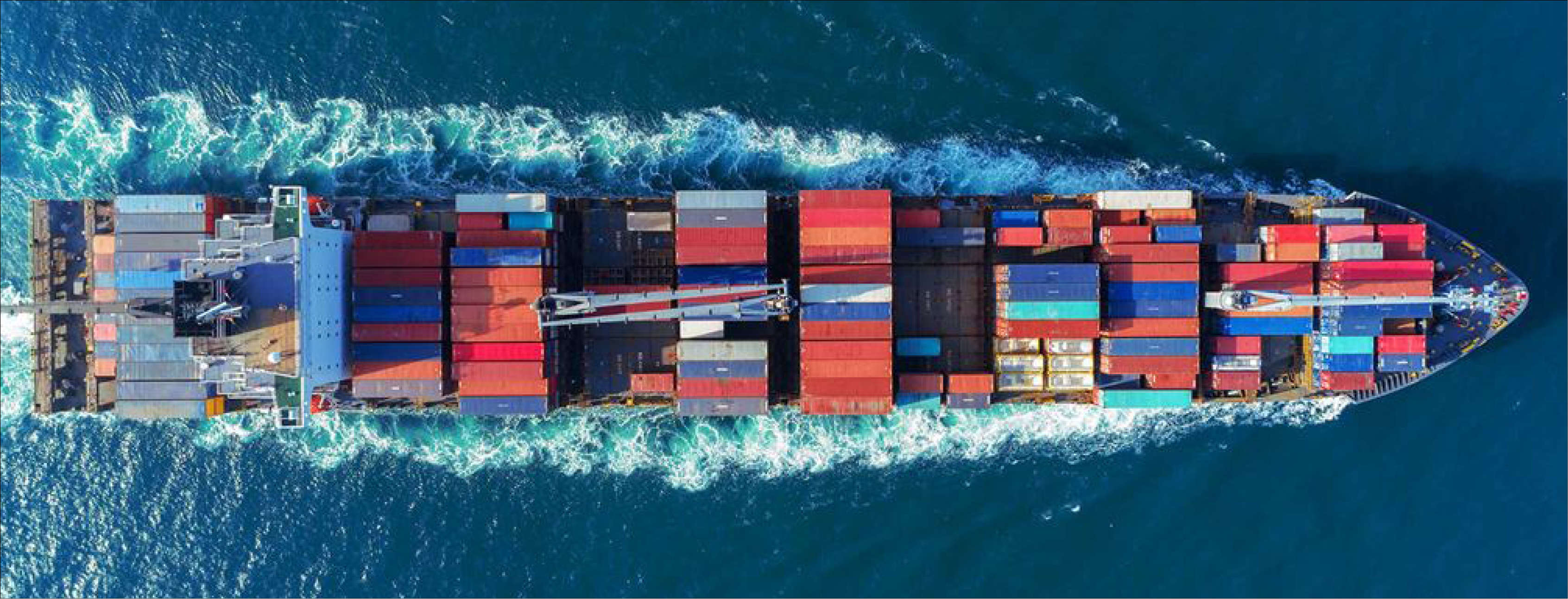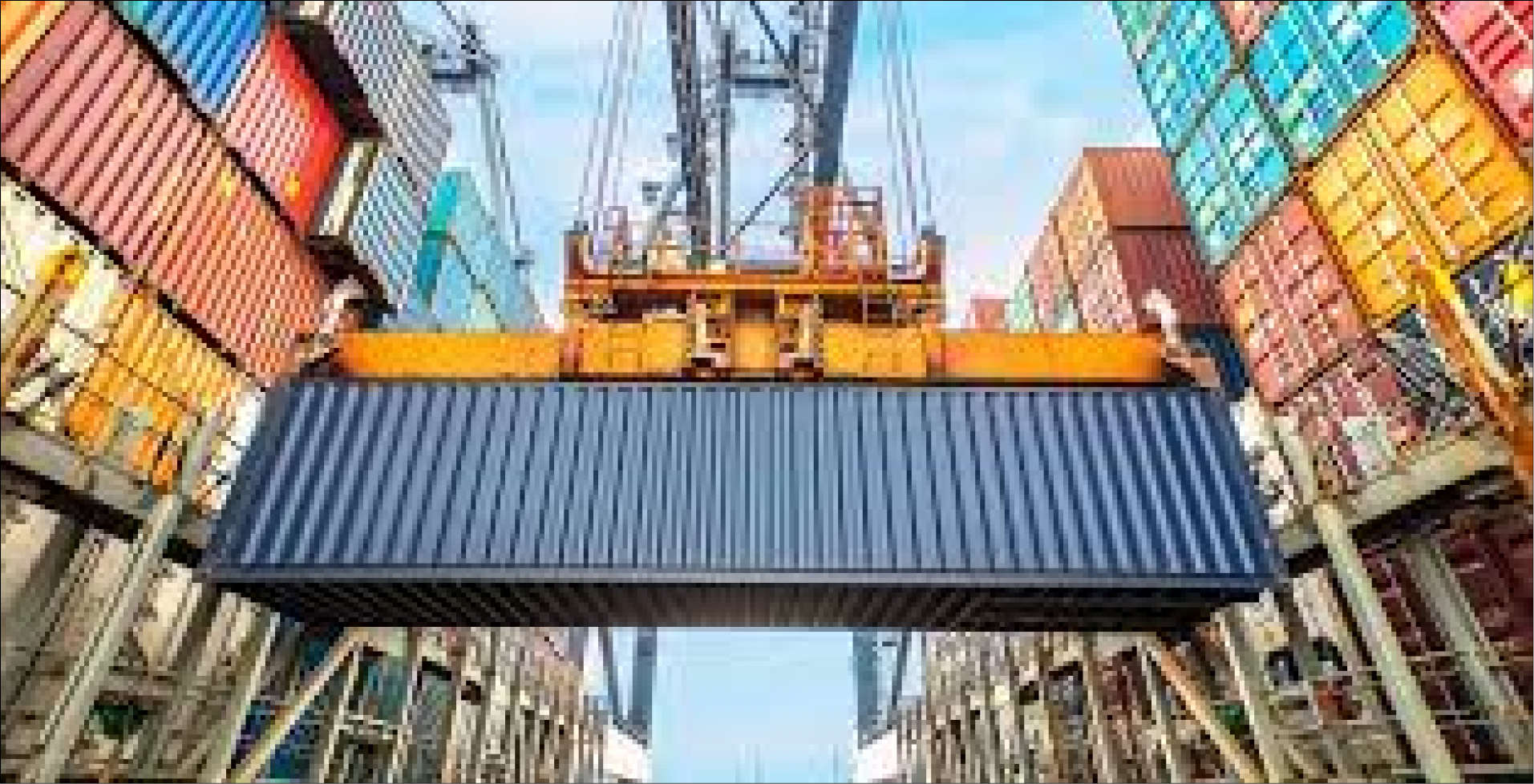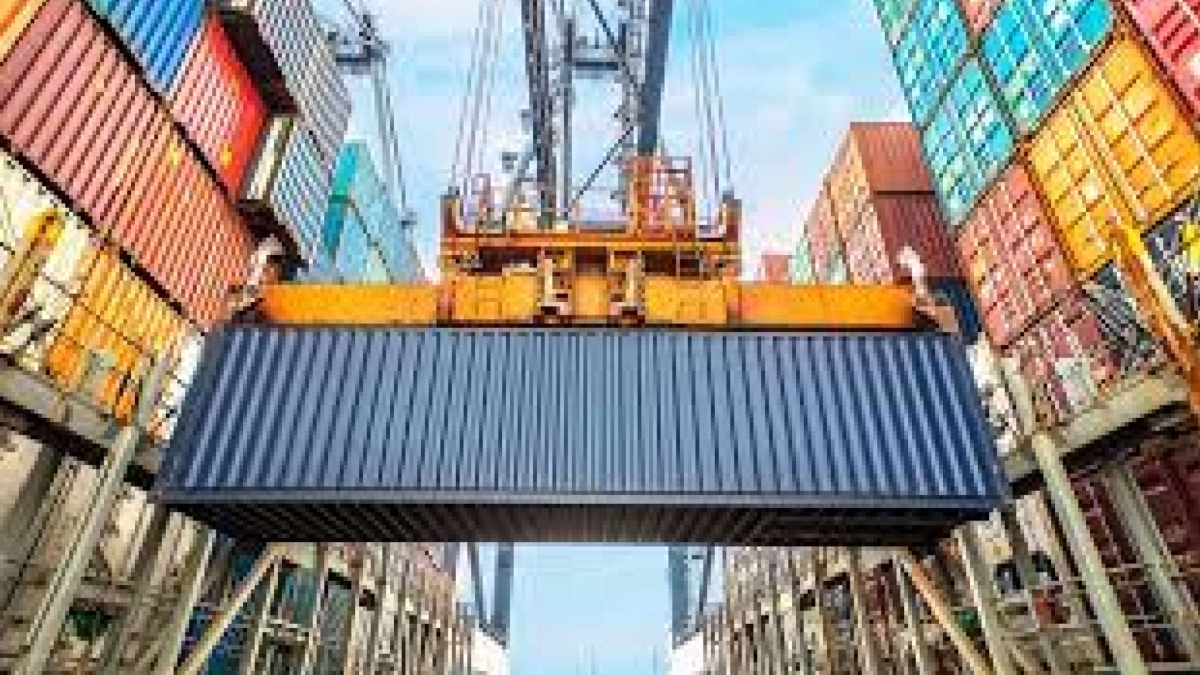HOW TAX ON OCEAN FREIGHT WORKS
Ocean Freight is a method of transporting huge quantities of goods through the sea. The levy of taxes on Ocean Freight has been a matter of dispute in India for a while now. The GST law requires the importers to pay tax on ocean freight services under Section 9(3) of the CGST Act and Section 5(3) of the IGST Act, better known as the ‘Reverse Charge Mechanism’.


The location of the Service Provider (SP) and the Service Recipient (SR) must be considered. If the location of the SP and the SR is in India, Section 12(8) applies. But when the Location of SP or SR is outside India, the location of the SR is considered, unless the location of the SP is not known, then the SP’s location is considered but only for transportation [under Section 13(9)]. If the SP and SR are both outside India, the Importer is liable to pay IGST @ 5%. In addition to this, the importer also pays customs duty, freight on the CIF (Cost, Insurance and Freight) value and insurance even if the importer has paid IGST on the CIF value, he is still required to pay GST on ocean freight. This, is what any prudent person would term as “double taxation”.
When it comes to import on the CIF basis, the foreign supplier transports goods from a place outside India through a foreign shipping agency, to a port located in India. In CIF, the freight is paid by the foreign exporter to the shipping agency and the foreign supplier transports such shipment through the foreign shipping agency.
BEFORE GST
From 01.06.2016, transportation of goods from a place outside India up to the customs clearance station in India became liable to service tax, through the Finance Act, 2016. But an exemption was given for services by way of transportation of goods by an aircraft from a place outside India up to the customs clearance station.
If the service provider was situated outside India, the liability to pay service tax would be on the service recipient. In Free on Board (FoB) imports, service tax would be payable by the shipping line, if the shipping line was based in India; and the service tax would be payable by the importer under reverse charge if the shipping line is not based in India.
In case of CIF imports, there was no service tax levy on freight, as the service provider as well as the service recipient are situated outside India.
There existed ambiguity in levy of service tax that was attracted on ocean freight component only in case of FOB imports, and not attracted for CIF imports.
Vide Notifications dated. 12.01.2017 (Notification 3/2017) and 20.06.2012 (Notification 30/2012 ST), some efforts were made to clear the ambiguities. In addition to this, in respect of services provided or agreed to be provided by way of transportation of goods by a vessel from a place outside India up to the customs clearance station in India, the person liable for paying service tax other than the service provider would be the person in India who complies with sections 29, 30 or 38 read with section 148 of the Customs Act, 1962.
In addition to this a series of Notifications were issued pursuant to the problem at hand:
1. Vide Notification dated. 13.04.2017 (Notification 2/2017 ST), the definition of “person liable for payment of service tax” under Rule 2 (1) (d) (i) was amended and a new sub rule (Rule 7CA) was introduced in the Service Tax Rules, 1994.
2. Vide Notification dated. 13.04.2017 (Notification 14/2017 ST), a new rule, Rule 8B was introduced in Point of Taxation Rules, 2011, which spoke about the “Determination of point of taxation in case of services provided by a person located in non-taxable territory to a person in non-taxable territory.”
3. Vide Notification dated. 13.04.2017 (Notification 10/2017 CE NT), the definition of “input service” in the CENVAT Credit Rules, 2004, was amended to further facilitate proper implementation of the respective tax provisions.
The importer was thus made liable to pay service tax for the services of transportation of goods by vessel from a foreign port to Indian port in case of CIF imports.
The above position continued up to 30.06.2017, i.e., until the introduction of GST.
UNDER GST
And as per Section 14 of the Customs Act, 1962, the value of the imported goods shall be the transaction value of such goods for the purpose of levy of Customs duty and such transaction value in the case of imported goods shall include, in addition to price, any amount paid or payable for costs and services, including commissions and brokerage, royalties and licence fees, costs of transportation to the place of import, insurance, loading, unloading and handling charges to the extent as per Rule 10(2) of the Customs valuation (Determination of Value of Imported Goods) Rules, 2007.
Section 5(3) of the IGST Act, 2017 empowered the Centre to issue notification, specify categories of supply of goods or services or both, the tax on which shall be paid on reverse charge basis by the recipient of such goods or services or both and the recipient of such goods or services or both is liable to pay tax under reverse charge in relation to the supply of such goods or services or both.
Where the value of taxable service provided by a person located in non-taxable territory to a person located in non-taxable territory by way of transportation of goods by a vessel from a place outside India up to the customs station of clearance in India is not available with the person liable for paying integrated tax, the same shall be deemed to be 10 % of the CIF value of imported goods.
How ocean freight suffers double taxation
Ocean freight component suffers tax twice; first, it suffers IGST as component of Customs Duty on imported goods on CIF basis and second time IGST @ 5% in the form of Import of Services (Reverse Charge Mechanism) for payment by the importer. Therefore, IGST payment is levied twice on Ocean freight in the guise as part of transaction value of imported goods.
The impugned notifications are contrary to the provisions of Article 265 of the Indian Constitution which says that “no tax shall be levied or collected except by authority of law”. A delegated legislation (includes the notifications herein or rules) cannot provide levy or collection of tax which is not authorised by the parent statute.
Supply of ocean freight service is not covered either by Section 7 (inter-state supply) or Section 8 (intra-state supply) of the IGST Act. The Act does not contemplate levy or collection of tax from a person who is neither the supplier nor the recipient of supply.
A person other than a recipient cannot determine the “time of supply” as per the provisions of Section 13 of the IGST Act. In addition to this, Input Tax Credit can only be availed by the recipient of the supply which are intended to be used in the course of furtherance of business, under the provisions of Section 16 of the Act.
The Supreme Court in case of State of Rajasthan v. Basant Agrotech (India) Limited [2014 (302) E.L.T. 3 (SC)], held that the rule of construction of a charging section is that before taxing any person, it must be shown that he falls within the ambit of the charging section by clear words used in the section. No one can be taxed by implication. A charging section has to be constructed strictly. If a person has not been brought within the ambit of the charging section by clear words, he cannot be taxed at all.
Commissioner of Central Excise v. Acer India Limited [2004 (172) E.L.T. 289 (S.C.)], the SC held – “The intention of the legislature in a taxation statute is to be gathered from the language of the provisions particularly where the language is plain and unambiguous. In a taxing Act it is not possible to assume any intention or governing purpose of the statute more than what is stated in the plain language. It is not the economic result sought to be obtained by making the provision which is relevant in interpreting a fiscal statute. Equally impermissible is an interpretation which does not follow from the plan, unambiguous language of the statute. Words cannot be added to or substituted so as to give a meaning to the statute which will serve the spirit and intention of the legislature. The statute should clearly and unambiguously convey the three components of the tax law i.e. the subject of the tax, the person who is liable to pay the tax and the rate at which the tax is to be paid. If there is any ambiguity regarding any of these ingredients in a taxation statute, then there is no tax in law.”
The Hon’ble Gujarat High Court in the case of Mohit Minerals Pvt. Ltd. Vs. Union of India [Special Civil Application No. 726 of 2018], has set aside IGST on Ocean Freight and held that no tax is leviable under the IGST Act, 2017 on the ocean freight for the services provided by a person located in a non-taxable territory by way of transportation of goods by a vessel from a place outside India up to the customs station of clearance in India and the levy and collection of tax of such ocean freight under the impugned Notifications is not permissible in law and that taxing ocean freight is ultra vires and leads to double taxation.
Despite the attempts of the judiciary in defending the very concept of negating any occurrence of double taxation, the efforts made to amend the imprudent levy of IGST on ocean freight, or so to say, the lack thereof, is still very unsettling.
A person other than a recipient cannot determine the “time of supply” as per the provisions of Section 13 of the IGST Act. In addition to this, Input Tax Credit can only be availed by the recipient of the supply which are intended to be used in the course of furtherance of business, under the provisions of Section 16 of the Act.























